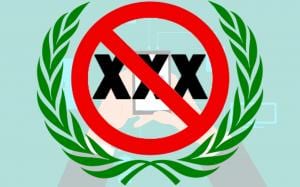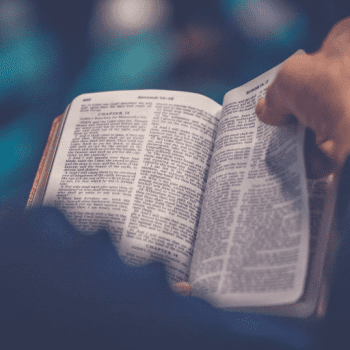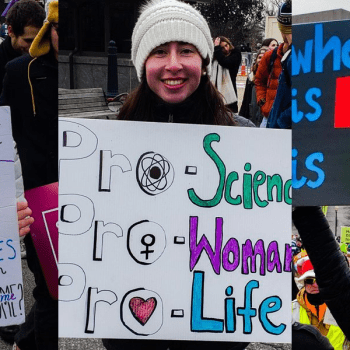Utah was in the news this week a new bill that requires all new devices come with internet filtering pre-installed. Adults would be allowed to remove these filters but minors could not. In the past, I had suggested similar ideas and this seems to definitely be a positive step. Unfortunately, the online pro-porn lobby does not want even this change in default settings. We need to fight to keep pornography away from kids and allow adults to easily avoid it.

The Utah Law
Conservative lawmakers in Utah have fired another salvo in their longtime campaign against online porn with a new requirement that all cellphones and tablets sold in the state automatically block pornography in a plan that critics call a significant intrusion on free speech.
This allows adults to deactivate the filter:
The National Center on Sexual Exploitation… cheered the bill, saying that while many electronic devices come with filters installed, turning them on can be challenging for parents.
“Utah has passed a critical, common sense solution to help protect vulnerable children from accessing harmful pornographic content on phones and tablets,” Executive Director Dawn Hawkins said in a statement. Adults would be able to turn off the filters if they chose.
As it is simply a default, not mandatory, it should be acceptable constitutionally.
Federal internet restrictions aimed at preventing kids from accessing porn were passed in the late 1990s and later stuck down in the courts. […] Susan Pulsipher sponsored the pornography filter measure, though she acknowledged it isn’t a complete solution.
“A child that wants to find it and tries to would probably be able to still. It’s just one step in the right direction,” she said.
She contends the measure passes constitutional muster because adults can deactivate the filters.
My Prior Article
I concluded a 2018 article with three possible legal actions against pornography:
Ideally, there would be no pornography but realistically right now, I don’t think we can ban the adult use of most porn. I want to propose three simple ideas that could be legislated and enforced. I think both of these might be able to gain decent support if politicians took up the cause.
Obscenity Laws
First, enforce obscenity laws that make more extreme pornography illegal. This almost happened under Bush Jr. except the administration got sidelined by terrorism after 9-11. His attorney general planned on, “targeting the producers of hardcore material—depicting, for example, rape, violence or bodily waste—that satisfied the complex Miller test.”
Internet Filters
Second, require internet providers to provide the option of filtered internet. FIltering on the level of the server that Comcast, Verizon or T-Mobile has is harder to bypass than a local filter and wouldn’t cost such companies much to operate. I wish when you signed up, you had to answer filtered or not. Obviously, such a solution would be imperfect as no method of blocking porn gets every image.
Move Porn to .xxx
The third would make the second much more effective. However, it would require some international cooperation. ICANN the non-profit that keeps the database of sites so when I type a web address into my browser, it goes to the right computer. Most of us think of websites ending with .com, .org, or similar but they have approved a whole slew of possible ending to website names. These include .xxx, .sex, and a few other for pornographic sites. Why couldn’t we force all pornography to be on such sites? That would make filtering easy. If a website currently has .com or similar it is pretty easy to simply make that redirect to .xxx. This would make filters super easy to maintain if that division was maintained. It would be much like video stores 20 years ago. Everyone could browse around the front but you had to be over 18 to step in the room at the back.
This Law and Natural Law
Personally, I still think an ISP-level filter would likely be better as it’s harder to bypass and easier to update. However, defaulting to blocking pornography is an excellent step in the right direction morally and legally.
There is a question about if a complete ban would be better. Besides the lack of political will above, I’m not sure if it would be preferred. Viewing pornography is clearly a sin. There is no debate there. We Catholics and proponents of natural law have long recognized that not every sin should be illegal. Enforcing criminal charges on some sins creates more problems than it solves. For example, making adultery illegal would likely cause more issues than it solves. (Adultery could be a civil matter such that the non-adulterous spouse could decide the divorce terms if the adultery leads to divorce.) When arguing for legally tolerating certain grave sins, Aquinas said:
In human government . . . those who are in authority rightly tolerate certain evils, lest certain goods be lost, or certain greater evils be incurred: thus Augustine says: “If you do away with harlots, the world will be convulsed with lust.” Hence, though unbelievers sin in their rites, they may be tolerated, either on account of some good that ensues therefrom, or because of some evil avoided.
A lot of these types of judgments depend on the exact social situation. I think this logic likely applies to some pornography today. Even if that does apply there should still be restrictions to make sure minors don’t have access to it and people don’t accidentally run across it online. My judgment here is tentative as this is clearly a prudential matter, not a clear black and white question. Nonetheless, as politics is the realm of the possible, this is only a theoretical question in the US today: we lack the popular will for a complete ban, and Supreme Court rulings on the First Amendment make it almost impossible.
Conclusion
Currently, 79% of those 13-17 have viewed pornography and the average age to first view it is 11. This is a dramatic situation that will have tremendous effects on society over time if we don’t change course. Let’s support Utah in this law. The law in Utah goes into effect once five states pass similar legislation to avoid undue costs on companies, so we should probably push for similar laws in other states. Let’s promote a filtered internet to protect minors and people of decant morals from the grasp of the pornography industry.
Notes:
- Along with probably additional filtering on any computer minors have access to OpenDNS FamilyShield is a good option. The basic version is free; it’s faster than most default DNS servers; it is not too hard to set up; and it blocks the vast majority of pornography. My devices are all set up with it.
- Please support me on Patreon so I can write more on Catholic moral theology and topics affecting family life in step with the Church.












